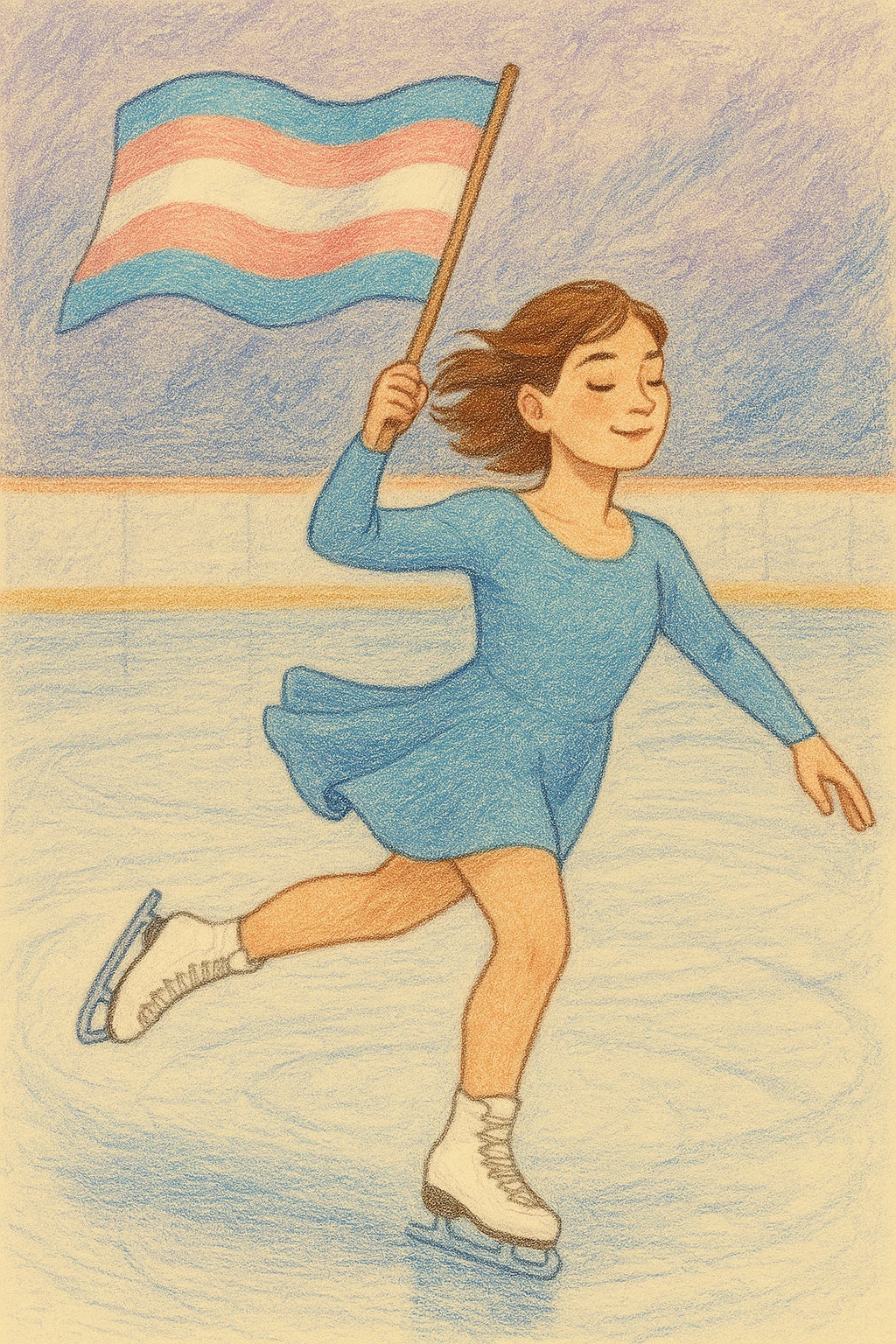I’ve never liked parades.
Not when I was a kid, not now. The noise, the heat, the performance of it all. The way people jostle each other to get a better view. The expectation that you’re supposed to be having fun. I always felt like I was watching something that wasn’t meant for me.
When I think about Pride, I don’t picture floats or glitter or half-naked dancers. I think about the quiet joy of being able to do the things I always wanted to do, as the woman I always was.
For some people, Pride is about being free to love who they love. About being able to kiss their partner in public, or hold hands without fear. That’s beautiful, and important, and true. But it’s not my story. Mine is a little different.
As a child, I gravitated toward girls—not in a romantic way, just in a recognition way. They were the people I felt most at ease with. I loved their softness, their games, their friendships. Activities like figure skating and horseback riding didn’t just bring me joy—they helped me make friends. The boys in my class didn’t mind. They thought it was charming, or at least harmless. I could float between groups without too much friction, without too many questions.
But then came puberty.
The shift was sharp and cruel. Suddenly, everything I loved made me suspect. The boys grew quieter around me, colder. The girls still smiled, but more cautiously now, as if my presence required justification. And the very things that used to win me friends—the pink laces, the frozen rinks, the brushing of horses’ manes—started to isolate me.
I had to make a choice: the activities that made me happy, or the dwindling chance to be included. I was young, and I didn’t want to be alone. So I stopped skating. I stopped riding. I learned to disappear inside myself.
That’s the real divide, for me. Not just between boy and girl, but between being in the world and being kept outside of it. Not because I didn’t love people, but because I didn’t know how to keep reaching across the gap that kept growing between us.
Transitioning didn’t feel like rebellion. It felt like stitching myself back into the life I had always been meant to live. It felt like reentering a room I had been quietly pushed out of.
So when I think about Pride, I don’t think about liberation through spectacle. I think about quiet safety. I think about putting on a swimsuit and going to the beach with friends. I think about horseback rides and figure skating lessons. I think about movie nights, and ski trips, and sitting in the sun with people who see me as I am.
I’m not looking for a party. I’m looking for a life.
A life where I’m not performing, or defending, or standing out. A life where I get to be included. A life where the chasm is gone.
Sometimes I worry that this version of Pride—soft, ordinary, uneventful—isn’t big enough. Isn’t bold enough. But the truth is, for a lot of trans people, the radical thing isn’t dancing in the street. It’s feeling safe in a bathing suit. It’s being able to share a room with your girlfriends and not feel like an imposter. It’s being able to breathe.
I used to think Pride wasn’t for me because I didn’t want to march. But now I think Pride is about having the life you always dreamed of, in the body and community that finally feel like home.
Not a dance floor. A mountaintop. A beach towel. A chairlift. A car ride with the windows down and friends in the backseat, singing along.
Not different. Not separate. Just part of it.





I think it's important to share that not every piece of Pride is soaked in glitter and vibrating with shrieks of joy. Sometimes it's almost invisible. Doesn't make it any less important, any less real, any less wondrous. I'm really glad you shared this.
Beautiful Ari.
You weave your words together like a wonderful tapestry.